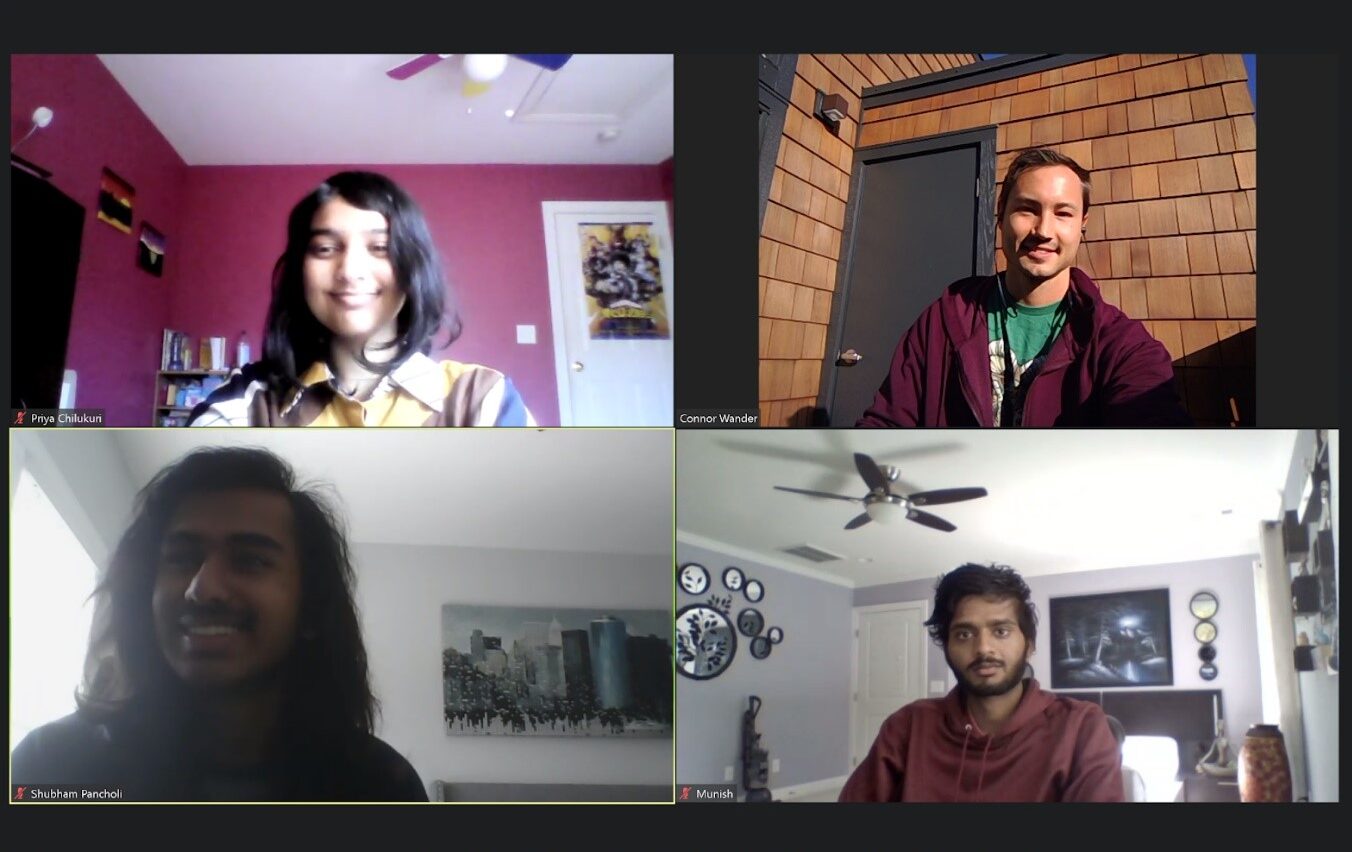BY CONNOR WANDER
Connor Wander is a postdoctoral associate at Alkahest, Inc. and a recent graduate in pharmacology from the University of North Carolina at Chapel Hill. Outside of the lab, he enjoys graphic design, gaming, Brazilian Jiu Jitsu, paintball, and caring for his bearded dragons.
Humans are a playful species. Games can be educational, but balancing learning and fun presents a unique challenge. The Scientific Research and Education Network (SciREN), through a partnership with motivated and talented Wake County Public School System students, has turned learning upside down. “Straight from a Scientist” offers free educational science games on the brain, virology, and the ever-present coronavirus.
Straight from a Scientist’s mission is to inform, inspire, and investigate. We produced podcasts, infographics, and articles on cutting-edge science. Like the farm-to-table supply chain, research results straight from a scientist are fresh and unprocessed, highlighting the diversity, personality, and nuance of each scientist and research path.
In late 2019 and early 2020, I was recording and uploading video and audio podcasts to Youtube, Spotify, and Stitcher, capturing scientists in their “natural habitat.” But as we all know, 2020 brought COVID-19. Lab work slowed, stopped, then restarted at a crawl. Meetings and seminars became exclusively virtual.
Since onsite podcasts weren’t viable, we chose a different tack: science games.
I started small and with a familiar topic: the brain. My graduate research focused on the interaction between different types of brain cells in Alzheimer’s disease and aging. Alzheimer’s is an age-related neurodegenerative disease, which eventually leads to death by causing the loss of neurons — key brain cells that generate electrical signals and shuttle information to control thoughts and impulses. Other cell types, like astrocytes and microglia, keep the brain clean and running smoothly. These cells vastly outnumber neurons and could be the key to curing diseases like Alzheimer’s.
I first demoed the proof-of-concept game, “Not Just Neurons,” at the SciREN open house in 2020. Interest from teachers was clear, but the game was rough around the edges.
A group of creative and hard-working students at Apex High — Jason Wills, Priya Cilukiru, Munish Nidadavolu, and Shubham Pancholi — joined the project to help polish games in development and design new ones.

Pictured left to right : Priya Chilukiru, Connor Wander, Shubman Pancholi, Munish Nidadavolu
Through online meetings, we drew up plans for expanding Straight from a Scientist’s catalog, starting with the coronavirus. Calvin Yeager, a Ph.D. student in virology at the University of North Carolina at Chapel Hill, provided expertise. Calvin also runs a science podcast we highly recommend, “Curioscity.”
Together, we broke down topics into simple explanations, and we designed the game around different subtopics, including “What Are Viruses?”, “Viral Replication,” and “Flattening the Curve.”
Straight from a Scientist now hosts a dozen game modules available for free on our website, most of which are aimed at helping students understand how viruses work and how to stay safe during the current pandemic. Tablets or computers work best for these games.
We’re still working on them and designing new ones — so if there’s a change you’d like to see or a science topic you’re dying to hear about, let us know.
Connect with us on Twitter, Instagram, Facebook, or our website.
The Scientific Research and Education Network (SciREN) aims to connect local STEM researchers and educators to foster the dissemination of current research and ultimately enhance the science literacy of today’s youth. For years, North Carolina Sea Grant and a number of partners have supported and/or collaborated with the network.